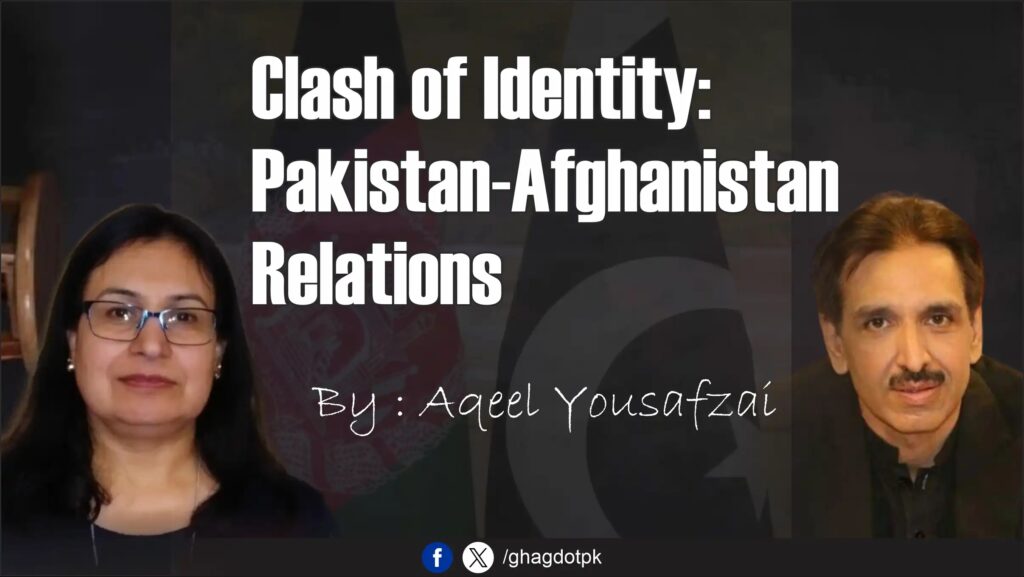Aqeel Yousafzai
Pakistan and Afghanistan have historically never had ideal or exemplary relations, despite being connected through various religious, linguistic, cultural, and trade ties. When Pakistan gained independence in 1947, Afghanistan opposed Pakistan’s membership in the United Nations based on the Durand Line issue. During the transition to independence, some nationalist circles in Afghanistan raised the slogan of “Pashtunistan,” further fueling tensions that persist in some form to this day.
In early June, a video made by an Afghan citizen of a former Pakistani military figure in a French city was hailed by some, as a great achievement based on hatred for Pakistan. However, recording someone without permission and using inappropriate language is not acceptable in any society, let alone Pashtun traditions. The manner in which certain expatriates defended this act with various self-made arguments was also quite unusual.
Regardless of the fact that Afghanistan has always been a hub of turmoil and political instability, the reality is that millions of Afghan citizens have lived and conducted business in Pakistan for various periods. However, a bitter truth is that after the 9/11 incident, even with the onset of democratic processes, political stability, and economic development in Afghanistan, only 4.3% of the nearly 3 million Afghan citizens are living in Pakistan returned to their homeland over 20 years, despite the announcement of special packages for returnees.
Putting aside the nature of Pakistan’s Afghan policy in the past and the criticism it has faced within Pakistan at various times, the truth is that Afghan rulers and certain nationalist circles never considered Pakistan as a friend. As a result, Pakistan has been extraordinarily sensitive about its neighboring country.
Recently, Dr. Farhat Taj, a renowned Pashtun scholar, researcher, and an analyst residing in Norway, completed a comprehensive research paper titled “Clash of Identity” on Pakistan-Afghanistan relations. Using historical references, credible sources, statistics and data, the paper attempts to explain how the two neighbouring countries have viewed each other with suspicion and what the stance and attitude of the millions of Pashtuns in Pakistan have been.
Dr. Farhat Taj’s detailed research concludes that the core of the issues between the two countries is linked to the concept of identity. According to her, Pakistan’s identity is based on being an Islamic state, whereas Afghanistan’s identity is established on ethnic and linguistic grounds, with the millions of Pashtuns in Pakistan being of fundamental importance. One significant factor in this regard is the “aftershocks” of the Durand Line agreement between Ameer Abdur Rahman of Afghanistan and British India. Nationalist circles, poets, and intellectuals in Pakistan have periodically raised this issue, highlighting Afghanistan’s stance that it does not recognize the Durand Line as a permanent border, while Pakistan considers it an international boundary.
The research indicates that Afghanistan has attempted to raise this issue on regional forums at various times but has not received significant attention. Additionally, even pro-Pakistan Afghan Taliban do not recognize the Durand Line as an international border.
The study also states that Pakistan has supported jihadist forces within Afghanistan at various times to ensure a friendly government in Kabul. This desire or effort is viewed in the context of Pakistan-India tension, as according to Farhat Taj, the case for Pakistan’s establishment during the partition or independence of India was based on the theory of an Islamic state.
The research explains that the tension and unrest in Pakistan’s tribal areas at different times were driven by similar reasons and factors, and this issue existed even before Pakistan’s establishment in the region. It is also mentioned that the behavior of Pakistan’s nationalists has been practically based on emotions, and compared to Afghanistan’s nationalists, students graduating from madrasas have more political insight. The paper discusses the status of Pashtuns in Pakistan, concluding that Pashtuns are not only the second-largest linguistic group in Pakistan but also a significant stakeholder.






